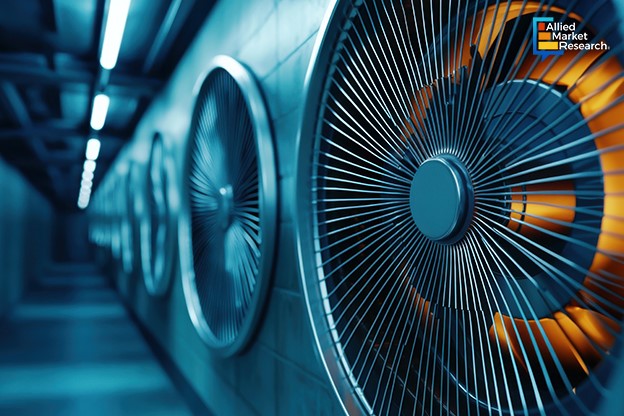How Technology and Material Innovation Leads to Next-Gen Industrial Noise Control

22 May
2025
Highlights:
- An introduction to industrial noise control
- Technological advances in designing cutting-edge noise control systems
- Key materials revolutionizing industrial noise management
- Pioneering initiatives by top players
Industrial noise control has become a key challenge for manufacturers, construction firms, and energy producers worldwide. With rapid industrialization and rise in regulatory standards for workplace safety and noise pollution, the demand for advanced noise reduction solutions has surged in the last few years. Effective noise control systems safeguard employees from hearing loss and stress-related issues and help companies avoid costly fines and reputational damage. In addition, continuous advancements in materials, engineering, and smart technologies, today’s industrial noise control solutions are more efficient and adaptable than ever, offering tailored approaches to reduce noise at every level of operation.
Advanced noise control technologies for modern industrial environments
The industrial noise control industry has witnessed prominent growth due to spontaneous integration of smart technologies and new engineering approaches. One of the most significant trends is the adoption of IoT and AI-powered systems. These smart solutions use sensor networks to monitor noise levels in real time, enabling adaptive responses such as automatically adjusting noise barriers or insulation panels to maintain compliance with regulatory standards like OSHA (The Occupational Safety and Health Administration). In addition, AI algorithms analyze noise data to predict maintenance needs and optimize noise reduction strategies, minimizing downtime and improving operational efficiency.
Hybrid noise control technologies represent a key innovation in this field. Manufacturers are able to target a broader range of frequencies by combining passive methods, such as barriers and panels with active noise cancellation (ANC) systems. Passive solutions are effective for low-frequency noise, while ANC excels at higher frequencies, making hybrid systems particularly versatile in current-age industrial environments.
Other emerging solutions include intelligent active noise suppression panels, which analyze sound data and emit counteracting sound waves, achieving up to 92% reduction in perceived noise. Acoustic metamaterial rings, developed using 3D printing, allow air to pass through while blocking sound, providing a novel passive solution for applications like industrial fans and HVAC units.
Role of modern materials in effective industrial noise reduction
The effectiveness of noise control products mainly relies on the types of materials used. Traditional materials like mineral wool and foam remain popular for their sound-absorbing properties. Nowadays, a diverse range of advanced materials is expanding the possibilities for effective industrial noise control. Polyester fibre, known for being lightweight, non-toxic, and highly porous, is ideal for absorbing high-frequency noise and is valued for its durability and resistance to abrasion, fire, and moisture. This makes it ideal for heavy machinery environments.
Moreover, polyurethane foam is another popular choice, particularly effective at dampening high-frequency sounds when used in adequate thickness. They are often used in panels and enclosures. Furthermore, silicone commonly used as a caulk or coating, provides airtight insulation and is especially useful for sealing joints and corners to prevent sound leakage. Epoxy composites offer robust structural support while delivering excellent sound-dampening properties.
Lloyd’s Register joined LOWNOISER project to reduce underwater noise pollution
In February 2025, UK-based classification society Lloyd’s Register (LR) has become a partner in the LOWNOISER project, an innovative initiative focused on reducing underwater noise pollution generated by maritime traffic. The LOWNOISER project aims to showcase effective and long-lasting solutions for reducing underwater noise, applicable to both newly built ships and retrofitted vessels. In this project, key noise-mitigation strategies and eco-friendly technologies are explored include air lubrication systems, low-noise bevel gears and engine mounts, onboard noise monitoring systems, and distributed acoustic sensing.
The crux
With the rise in the sophistication of industrial operations, the need for effective noise control is becoming increasingly essential. Moreover, rapid advancements in smart technologies, hybrid systems, and advanced materials, modern noise control solutions offer superior adaptability and efficiency. These innovations enhance workplace safety and regulatory compliance and support sustainable, high-performance environments across manufacturing, construction, and energy sectors.
For more insights into the latest trends in the industrial noise control industry, reach out to our industry specialists here!

Rosy Behera
Author's Bio- Rosy Behera holds a bachelor’s degree in Electrical and Electronics Engineering and now she is a content writer by profession. She loves to portray her thoughts and ideas with a nice command of words. Grabbing an audience with her creative write-ups is one of her biggest assets so far. Apart from writing, she is a certified “Odisi” dancer and has done Gardharva in Drawing, Painting, and Arts. She always explores new things through travel and is a big foodie.
Avenue: Entire Library membership of Allied Market Research Reports at your disposal
- Avenue is an innovative subscription-based online report database.
- Avail an online access to the entire library of syndicated reports on more than 2,000 niche industries and company profiles on more than 12,000 firms across 11 domains.
- A cost-effective model tailored for entrepreneurs, investors, and students & researchers at universities.
- Request customizations, suggest new reports, and avail analyst support as per your requirements.
- Get an access to the library of reports at any time from any device and anywhere.
Related Post
-
How are Submarine Cables Transforming Global Connectivity with Enhanced User Experience?
-
Endoscopy Procedures: Transformations in Techniques and Applications
-
AI-Powered Video Analytics: How the Product Actually Works for enterprises
-
Painting Robots: Transforming Precision Coating and Creative Applications
-
Innovations in Pharmacovigilance Systems Advancing Patient Safety
-
Understanding Edge Security: Keeping Data Safe Near the Source
-
Exploring the Use and Advancements of 3D Laser Scanners in Professional Applications
-
Reinforcing Industrial Controls with Smarter Tools and Training








